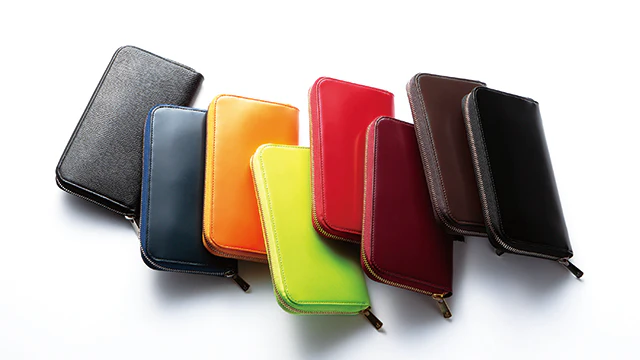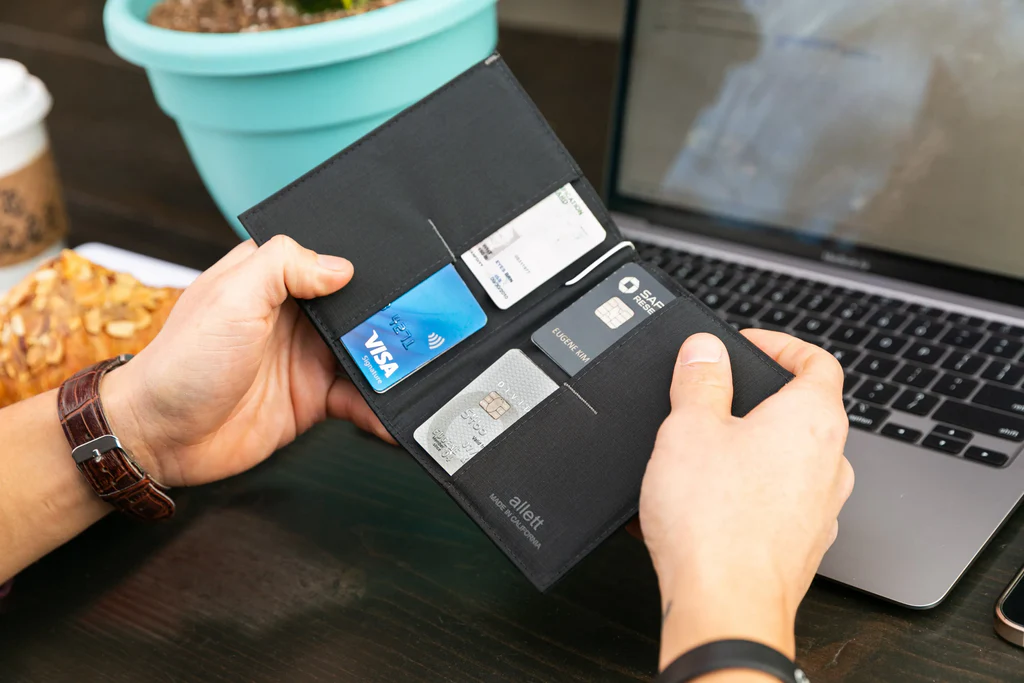Wallet for Japan: What Type of Wallet You Should Bring When Visiting

Traveling to Japan is an unforgettable experience — from bustling Tokyo streets to serene Kyoto temples, the country blends modern technology with deep-rooted traditions. But one detail that many travelers overlook is how to manage money efficiently during their trip. Unlike some countries where cashless payments dominate, Japan still has a unique balance of cash and digital transactions. Choosing the right wallet for Japan can make your travels smoother, safer, and more enjoyable. This guide will cover the essentials, from cash handling to IC cards, Wallet for Japant types, and travel tips to keep your money organized.
Understanding How Money Works in Japan
Currency Overview: The Japanese Yen
The Japanese yen (¥) is the official currency, with bills ranging from ¥1,000 to ¥10,000 and coins from ¥1 to ¥500. Unlike many countries, coins are widely used in daily transactions. Small denominations are especially common in convenience stores, vending machines, and local markets. Having a Wallet for Japan that accommodates coins is essential, as trying to stuff them into a regular billfold can be cumbersome. Travelers often find themselves juggling coins while purchasing snacks, drinks, or train tickets, so a separate coin compartment can save time and frustration.
Understanding the yen’s value is also crucial. Large bills are rarely broken down into smaller denominations in rural areas, so carrying a mix of bills and coins ensures you’re prepared for any situation. Some travelers prefer to carry a dedicated coin purse alongside their main Wallet for Japan, keeping small change organized and easily accessible. This is particularly useful for public transportation and temples, where coins are often used for donations.
Cash Culture in Japan
While Japan is technologically advanced, cash remains a dominant payment method in many places. Local ramen shops, street vendors, taxis, and smaller retailers often prefer cash over cards. This is especially true in rural towns or areas away from major cities. Even in urban centers like Tokyo, cash can be more convenient for small purchases. Knowing this, travelers should carry a reasonable amount of yen at all times, while also being mindful of security.
ATMs in Japan are reliable but not universally compatible with all foreign cards. Convenience stores such as 7-Eleven and post office ATMs usually accept international cards and offer English-language instructions, making cash withdrawals straightforward. Travelers can also plan ahead by withdrawing sufficient yen at airports or major banks to avoid last-minute searches for ATMs.
Rise of Digital and Contactless Payments
In recent years, digital payments have become more common in Japan. IC cards such as Suica and Pasmo, mobile payment apps, and international credit cards are increasingly accepted in shops, restaurants, and even vending machines. These options offer convenience for tourists, allowing quick tap-and-go transactions without the need to carry excessive cash.
However, it’s still wise to maintain a balance between cash and digital payments. Not every establishment accepts cards, and some smaller retailers prefer cash. Having a wallet that can organize bills, coins, and cards separately ensures travelers can switch between payment methods seamlessly. A wallet with compartments for IC cards also helps prevent scratches or demagnetization, keeping your transit and payment cards functional throughout your trip.
Choosing the Right Wallet for Japan
Essential Wallet Features for Travelers
A travel wallet for Japan should combine functionality, security, and convenience. Size matters: it should fit easily in a pocket, purse, or crossbody bag without being bulky. Multiple compartments for bills, coins, and cards prevent clutter and make transactions quicker. Security features such as RFID protection and zippered sections help safeguard against digital theft or accidental spillage. Materials like leather, fabric, or minimal metal designs offer durability while remaining lightweight for daily use.
When selecting a Wallet for Japan, consider your typical activities. Will you be walking long distances, hopping between trains, or spending time in crowded markets? A wallet that allows quick access to cash and cards while staying secure on your person can reduce stress and improve efficiency during busy sightseeing days.
Wallet Types for Different Travelers
Different travelers have different needs. Minimalist wallets are perfect for light packers, holding only essential cards and bills. Travel Wallet for Japan are better suited for families or those carrying multiple currencies, passports, and tickets. Coin purses are indispensable in Japan for handling the frequent use of yen coins. RFID wallets provide protection against electronic theft, while women’s travel wallets often combine style and practicality, fitting neatly into handbags while accommodating essentials.
Selecting the right type depends on your travel style, itinerary, and personal preferences. A combination of a main wallet and a coin pouch often proves most practical for Japanese travel.
Best Wallet Brands and Recommendations
Several brands cater specifically to travelers. Bellroy, Pacsafe, and Nomatic are known for functionality and durability, while Secrid and Herschel offer compact, stylish designs. Japanese brands like Mujirushi produce simple, high-quality Wallet for Japan that suit both minimalists and practical travelers. Budget-conscious travelers can find versatile wallets under $50 that still offer compartments for bills, coins, and cards, making it easier to navigate Japan’s diverse payment landscape.
How to Organize Your Wallet for Japan

Managing Cash and Coins
Organizing cash and coins efficiently is essential. Separate large bills from smaller denominations to make transactions quicker. Use a dedicated coin compartment or small coin pouch for ¥1, ¥5, ¥10, ¥50, ¥100, and ¥500 coins. This helps when paying at vending machines, small shops, or temples, avoiding the frustration of fumbling for change.
A well-organized wallet saves time and stress, especially in crowded train stations or busy markets. Keeping coins easily accessible is also culturally respectful, as Japanese vendors appreciate smooth and polite transactions.
Using IC Cards and Transit Wallets
IC cards like Suica and Pasmo are widely used for public transportation and can also be used at convenience stores, restaurants, and vending machines. Storing them in a separate card sleeve or wallet compartment prevents scratches and keeps them easily accessible. Linking them to mobile wallets, like Apple Pay or Google Pay, provides backup options, making travel in Japan even more seamless.
Handling Receipts and Change
Japanese shopping etiquette encourages neat handling of money. Vendors present change carefully, and it’s polite to receive it with both hands. Keep receipts organized in your wallet to track spending or claim tax-free shopping refunds. Avoid overstuffing your wallet; a clutter-free wallet ensures smooth transactions and prevents damage to your cash or cards.
Safety and Security Tips
Protecting Your Wallet from Theft
Japan is considered one of the safest countries in the world, but crowded areas like trains and tourist attractions still require vigilance. Carry your wallet in a secure location — front pockets, crossbody bags, or money belts are recommended. Avoid keeping excessive cash or unnecessary cards in your wallet, reducing potential loss if misplacement occurs.
Travel wallets with anti-theft features, such as RFID protection and zippered compartments, provide additional security. Small adjustments, like using a discreet travel pouch inside your bag, can prevent pickpocketing and provide peace of mind.
What to Do If You Lose Your Wallet in Japan
Japan has an efficient lost-and-found culture. Police stations (Koban) are helpful, and public spaces often have lost-and-found departments. If your wallet goes missing, report it immediately and contact your bank to block cards. Many travelers recover lost items due to the strong cultural emphasis on honesty, making Japan a relatively safe country for managing lost property.
Additional Travel Money Tips
- Exchange money at airports, banks, or convenience stores for the best rates.
- Carry enough cash for daily expenses, especially in rural areas.
- Use mobile payment apps as a backup to minimize carrying large amounts of cash.
- Consider travel insurance that covers loss or theft of money and cards.
Conclusion
Choosing the right wallet for Japan can significantly enhance your travel experience. By understanding Japan’s cash culture, balancing digital and cash payments, and selecting a wallet that is secure, compact, and organized, travelers can navigate the country smoothly. Whether using a coin pouch, IC card holder, or RFID-protected wallet, being prepared ensures you can focus on exploring Japan’s beauty, culture, and culinary delights without worrying about your money.
A well-chosen wallet allows you to travel confidently, blending convenience with safety, and enjoying every moment of your Japanese adventure.
Frequently Asked Questions (FAQs)
Do I need a special wallet for Japan?
Yes, a travel-friendly wallet with compartments for coins, bills, and cards is highly recommended.
Is Japan a cash-only country in 2025?
Not entirely — cash is widely used, but digital payments and IC cards are increasingly common.
Should I bring a coin purse to Japan?
Absolutely. Coins are heavily used in everyday transactions.
Are credit cards widely accepted in Japan?
Credit cards are accepted in many urban areas, but cash is preferred in smaller shops and rural locations.
What’s the best way to carry money safely in Japan?
Use a secure travel wallet or crossbody bag, avoid overstuffing it, and consider RFID protection.
Can I use Apple Pay or Google Pay in Japan?
Yes, in many urban stores, but it’s still smart to carry cash for smaller vendors.
What is an IC card, and how do I use it?
IC cards like Suica or Pasmo store money for transportation and small purchases; store them in a wallet sleeve for easy access.
Are RFID wallets necessary when traveling in Japan?
Not essential, but they provide extra security against digital theft.
How much cash should I carry per day in Japan?
Around ¥5,000–¥10,000 is sufficient for most daily expenses, with larger bills for shopping or dining.
What should I do if I lose my wallet in Japan?
Report to the nearest police station (Koban) and contact your bank; Japan has an efficient lost-and-found system.
You May Also Read: Living in Worthing




